Strengthening cooperation with international partners has been and will be one of the priorities of the Development Bank. This need is dictated by the strategic role of DBK in the economy of Kazakhstan, which consists in providing long-term financing for large-scale projects aimed at ensuring the transition of the national economy from dependence on raw materials to the development of high-value industries. Such projects are often characterized by high risks, long payback periods and equipment imports. In order to find long-term financing, foreign export credit agencies (hereinafter - ECA) are involved, which insure the political and commercial risks of projects, thus reducing the final cost for our clients.
It is in this process of the pricing of export credit agencies that the OECD country classifier plays an important role.
"According to the OECD country classification, the Republic of Kazakhstan is now at level 5. This undoubtedly affects the economy of the projects financed by us, the conditions for structuring the current transactions of the Bank, since now they have become an order of magnitude higher than those that were earlier. That is why we invited OECD experts to find out possible ways to improve the classification of country risk, " said Deputy Chairman of the DBK Board Dmitriy Babichev.
"The main specificity of the work of international experts is that they do not look at government programs or reforms carried out in a particular country, they assess specific steps at all levels of government. Therefore, this kind of cooperation is very important in this matter, which allows sharing information and knowledge,” said William Thompson, Head of the Eurasia Division of the OECD Global Relations Secretariat.
Another important key message of the meeting was the discussion of "green" projects. Understanding the current environmental problem in the country, today the government of Kazakhstan pays great attention to the development of renewable energy sources.
In accordance with the concept of Kazakhstan's transition to a green economy, by 2050, the share of renewable energy sources must be brought up to 50 percent of the total energy generated. In this regard, DBK representatives agreed to exchange methodology, experience and practice with OECD experts on a regular basis. Given the rich analytical knowledge of the organization, such cooperation is especially valuable for DBK.
"The need to transition from traditional to renewable energy sources in Kazakhstan is very acute. Global trends do not pass us by, they dictate the need to introduce "green" standards in current activities. Now there are 5 projects in the renewable energy sector in the DBK portfolio, new applications are received, so close cooperation with the OECD will improve our approaches to financing "green" projects, bring them to the level of international financial organizations," Chairman of the DBK Board Abay Sarkulov shared.
Representatives of the OECD also promised to regularly share the results of research with the DBK, to invite Development Bank of Kazakhstan JSC to participate in working groups. Please be reminded that the Organization for Economic Co-operation and Development is one of the most respected international organizations that develops recommendations and policies for national governments on a wide range of economic issues. The OECD was established in 1948 and is headquartered in Paris. The OECD consists of 36 countries, which account for 60% of world GDP. The activities of the OECD are focused on implementing coordinated policies aimed at ensuring sustainable economic growth and improving the living standards of member countries.












